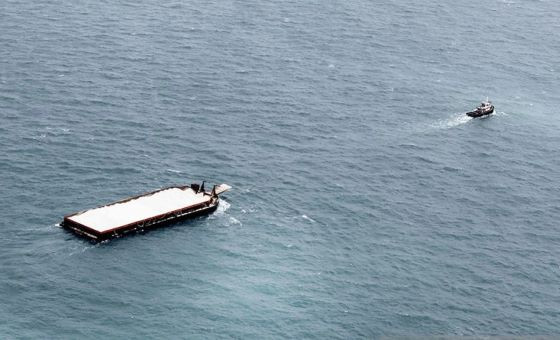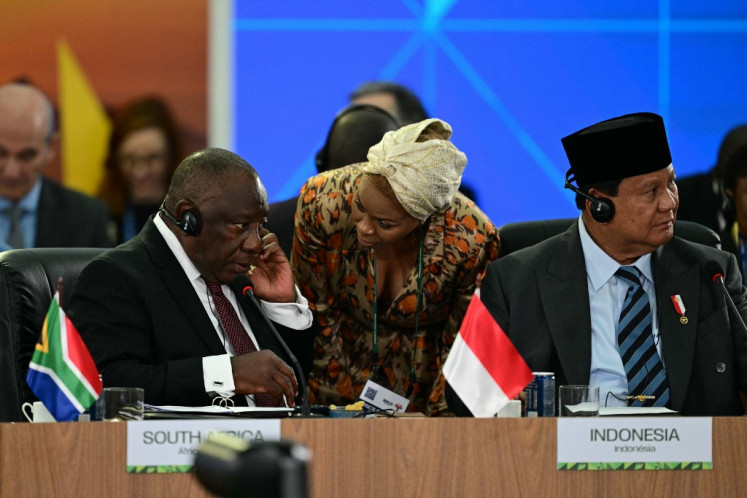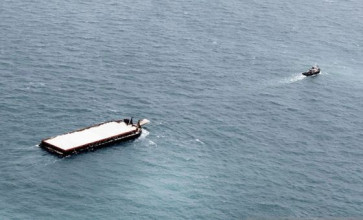Popular Reads
Top Results
Can't find what you're looking for?
View all search resultsPopular Reads
Top Results
Can't find what you're looking for?
View all search resultsSea sand exports: Singapore gains, Indonesia loses
The environmental degradation, biodiversity loss and erosion of coastal communities outweigh the short-term economic benefits of exporting marine sediment to Singapore or other countries.
Change text size
Gift Premium Articles
to Anyone
I
n May 2023, the government issued Government Regulation No. 26/2023, emphasizing the need for the sustainable management of marine sedimentation. This regulation was designed to protect marine ecosystems while tapping into the potential of these natural resources. It serves as the primary legal foundation for all activities involving the dredging and management of marine sediment.
Building on this, in December of that year, the maritime affairs and fisheries minister issued Decree No. 208, which outlines priority areas for marine sediment dredging. This measure ensures that dredging is concentrated in specific strategic locations.
One of the most significant areas designated is the North Natuna Sea, particularly the waters surrounding Karimun Island, Lingga Island and Bintan Island in the province of Riau Islands. According to the Maritime Affairs and Fisheries Ministry, this region spans approximately 3.03 billion square meters, with an estimated sediment volume of 9.09 billion cubic meters, making it the most resource-rich area in the country. That volume is 5,165 times the size of Pramuka Island in Seribu Islands off Jakarta.
Given its proximity to Singapore, this location is highly strategic for supplying the neighboring country with sea sand, a resource critical for the city state’s ongoing land reclamation projects. Singapore's land expansion continues to demand large quantities of raw materials, and Indonesia, particularly the Natuna Sea, offers a convenient and cost-effective solution. Due to this geographic advantage, Natuna is poised to be the primary exporter of sediment to Singapore, as other locations within Indonesia are less economically viable due to longer distances and higher transportation costs.
Last month, the Trade Ministry further reinforced these policies by issuing Regulation No. 21/2024, which amends the previous export regulations and provides legal certainty to sea sand exporters. The new regulation also validates the government's decision to prepare Natuna’s marine sediment for export, primarily targeting Singapore, following the lifting of the previous export ban on marine sediment.
Singapore stands to benefit enormously from this arrangement. After years of relying on Malaysia for sand while exhausting its own natural resources, Singapore now has access to Indonesia’s vast marine sediment reserves.
The Singaporean government had previously been under pressure to halt land reclamation activities domestically after damaging its own islands and hillsides. By turning to Indonesia, Singapore effectively shifts the environmental costs offshore while enjoying steady access to critical materials. Economically, Singapore remains the clear winner in this trade, able to fuel its ambitious land expansion projects without further straining its own environment.



















